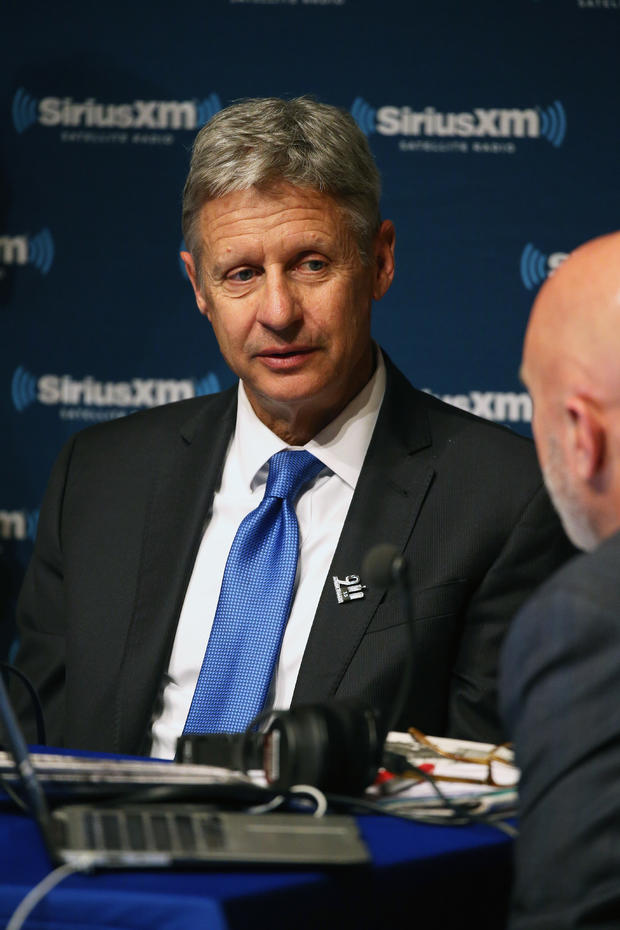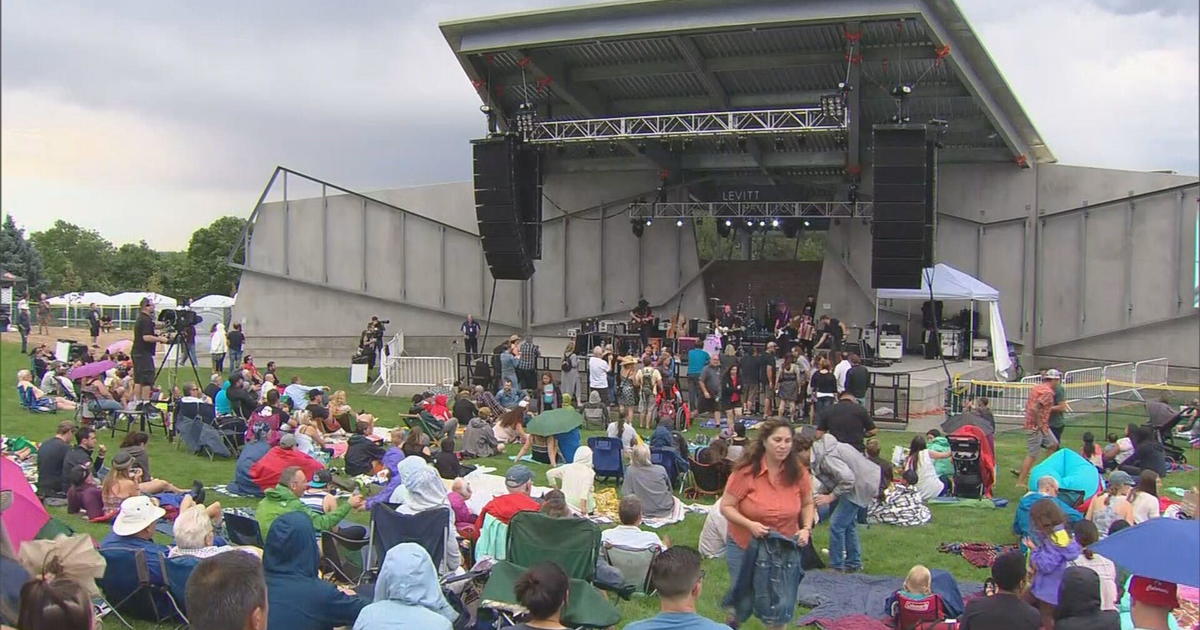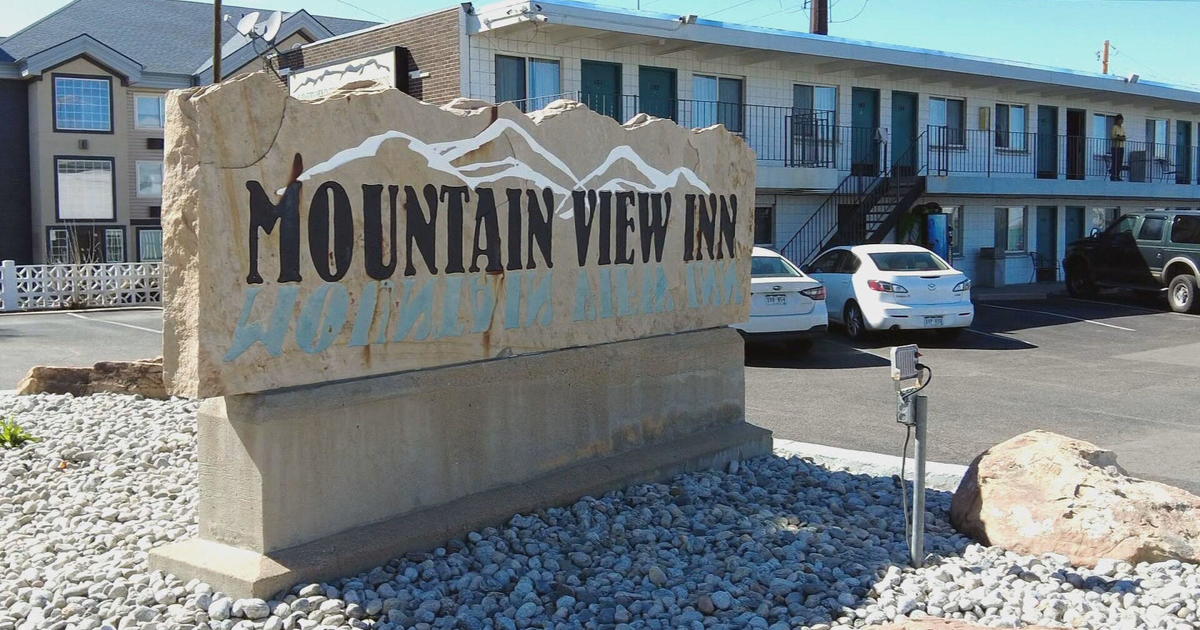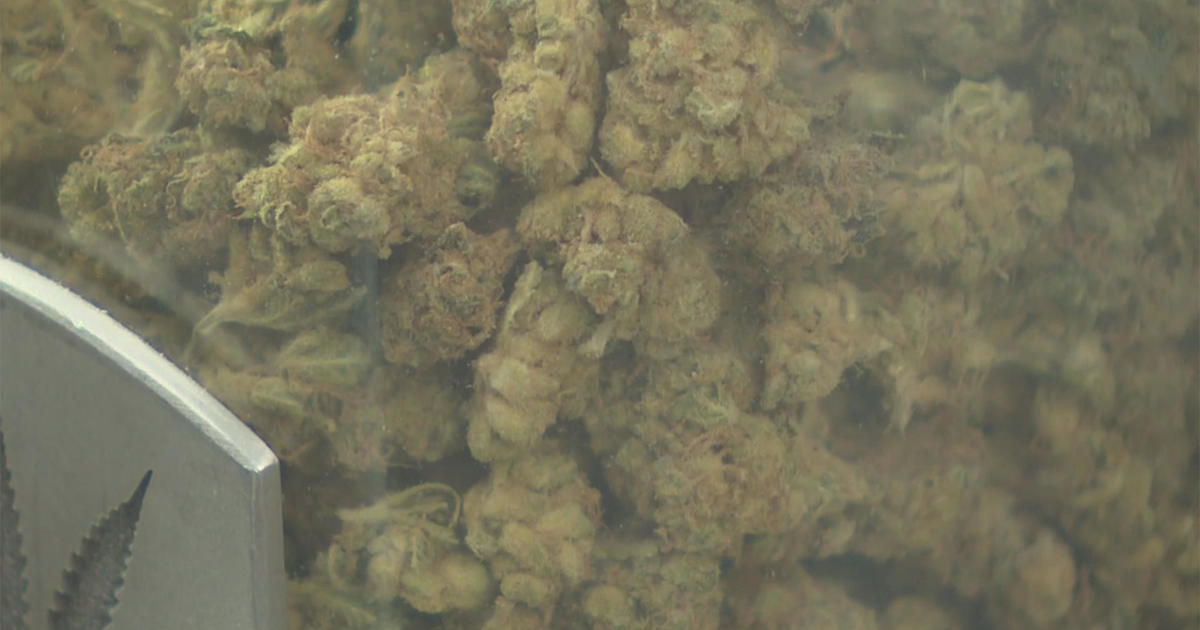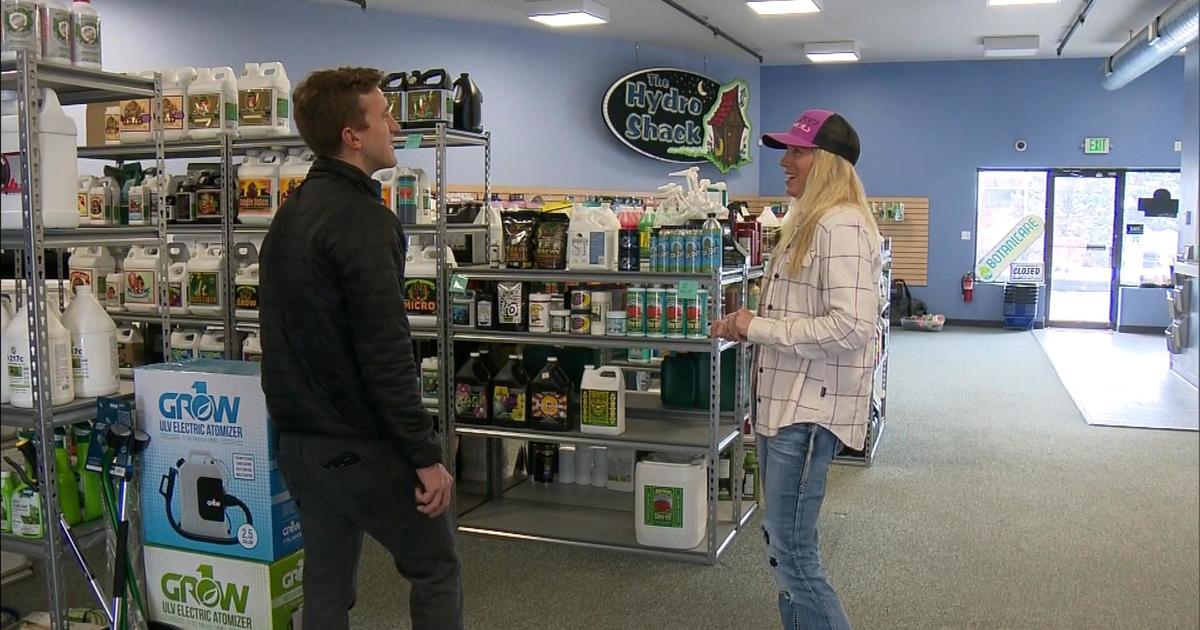Johnson Races Around U.S. To Qualify For Presidential Debates
DENVER (AP) — Most presidential hopefuls spend their Septembers in places like Ohio and Florida, hoping to win over a handful of swing voters in battleground states. But Libertarian presidential nominee Gary Johnson is crisscrossing the country in a desperate, last-ditch attempt to boost his national poll numbers and qualify for the presidential debates.
Johnson needs to reach an average of 15 percent in five national polls that the Commission on Presidential Debates relies upon to decide who qualifies for the first presidential debate on Sept. 26. But even his campaign manager acknowledges reaching that threshold is "unrealistic."
Johnson currently is just below 9 percent in three of those polls with results available so far. He is campaigning from Maine to Florida to Washington State in hopes of closing the gap. But he may be raising his profile the wrong way.
Last week, Johnson became a viral sensation for being stumped by a question on national television about what to do about the besieged Syrian city of Aleppo. His baffled response — "What is Aleppo?" — ricocheted around the internet.
"People get excited at one faux pas," complained Ed Crane, who runs an outside group that supports Johnson and bought $100,000 worth of national television ads to boost the candidate's profile last week. "To me, this overreaction is a sign that people are starting to worry about Gary."
The debates are the best and possibly only chance for the relatively underfunded former New Mexico governor and medical marijuana entrepreneur to become more than a protest vote. Supporters of Johnson and his vice presidential running mate, former Massachusetts Gov. William Weld, hope that debates would let the ticket broadcast its socially liberal and fiscally conservative message to a far broader audience than the people who attend his rarely covered rallies.
"It would be a huge amount for name recognition and exposure to the ideas," said Chris Rufer, a California tomato-processing magnate who has donated more than $1 million to Johnson and groups supporting him. "It's very important that it happens."
But the poll numbers are daunting. All five polls — by the three major networks, Fox News Channel and CNN — were scheduled to have new results before the debate deadline. In the three that have come out — Fox, CNN and ABC — Johnson registered at 9 percent, 7 percent and 9 percent respectively. That means he'd need to exceed 20 percent in the remaining two to clear the 15 percent mark on average.
Ron Neilson, Johnson's campaign manager, said in an interview that making the debates will be challenging. "The 15 percent is somewhat, I'll say, unrealistic," Neilson said. "It's probably too high."
Because of the widespread voter disgust with the two major-party candidates, Johnson has gotten more attention and support than many other recent third-party challengers, but his resources are still dwarfed by Clinton and Trump. For example, Johnson stirred excitement last month when he announced he had raised $2.9 million in the first two weeks of August. Clinton's campaign said it raised $143 million that month and the Trump team reported a $90 million haul.
Johnson is airing $900,000 in national radio ads and $500,000 in television ads in 10 mostly Western states where his campaign thinks his message best resonates. In contrast, Clinton and her supporters have aired $150 million worth of ads, according to Kantar Media's Campaign Media Analysis Group. Trump and his supporters have spent less but have still bought more than $7 million in airtime going forward.
The campaign has been critical of the nonprofit Commission on Presidential Debates for the 15 percent threshold, and Neilson said the campaign is urging supporters to pressure the commission to relax its criteria.
It's a familiar role for the commission, which was formed in 1987 to organize presidential debates and has often been criticized and sued by third-party candidates who argue it favors the two established political parties. It is chaired by a former Republican National Committee chairman and Bill Clinton's former White House press secretary.
The commission would not comment.
By NICHOLAS RICCARDI, Associated Press
(© Copyright 2016 The Associated Press. All Rights Reserved. This material may not be published, broadcast, rewritten or redistributed.)
